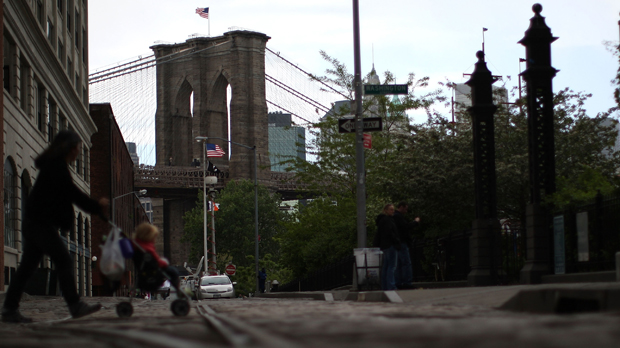Babies in prams ‘exposed to 60% more pollution than adults’
Study finds that because pollution levels are greater within 1m of ground level, infants are exposed to more of it than adults

A free daily email with the biggest news stories of the day – and the best features from TheWeek.com
You are now subscribed
Your newsletter sign-up was successful
Babies in buggies and prams could be exposed to up to 60 per cent more pollution than adults, which could negatively affect their cognitive abilities and brain development.
Researchers at the Global Centre for Clean Air Research, at the University of Surrey, carried out a review of existing scientific research and found that the breathing height of infants in prams was between 0.55m and 0.85m (2ft) above ground level.
The evidence indicates that because “pollution levels are greater within 1m of ground level, these infants are being exposed to up to 60% more fine particle air pollution than adults,” reports the BBC.
The Week
Escape your echo chamber. Get the facts behind the news, plus analysis from multiple perspectives.

Sign up for The Week's Free Newsletters
From our morning news briefing to a weekly Good News Newsletter, get the best of The Week delivered directly to your inbox.
From our morning news briefing to a weekly Good News Newsletter, get the best of The Week delivered directly to your inbox.
The study, which was published in the Environment International journal said that as roadside pollution contains high levels of toxic metals, this has the potential to impair brain development in infants.
Professor Prashant Kumar, one of the authors of the paper, said: “When you also consider how vulnerable they are because of their tissues, immune systems, and brain development at this early stage of their life, it is extremely worrying that they are being exposed to these dangerous levels of pollution.”
Kumar’s team suggest that a range of actions are needed to protect young children, including “‘active’ solutions such as controlling emissions of road vehicles, and ‘passive' actions such as placing roadside hedges between vehicles and pedestrians”, reports Canadian news site CTV.
Kumar added: “With the multitude of evidence we set out in this review, it is important that everyone across the country begins a full and frank conversation about pollution and the impact it has on our most vulnerable - from parents and community leaders, to government officials and industry.”
A free daily email with the biggest news stories of the day – and the best features from TheWeek.com
According to Unicef, 17 million children under the age of one across the world live in regions where air pollution levels exceed World Health Organisation-recommended guidelines.
Professor Jonathan Grigg, from the Royal College of Paediatrics and Child Health, who was not involved in the research, told the BBC the findings were a “major concern”.
“To help protect children's health we must promote alternatives to cars fuelled by petrol and diesel,” he added.
-
 Political cartoons for February 16
Political cartoons for February 16Cartoons Monday’s political cartoons include President's Day, a valentine from the Epstein files, and more
-
 Regent Hong Kong: a tranquil haven with a prime waterfront spot
Regent Hong Kong: a tranquil haven with a prime waterfront spotThe Week Recommends The trendy hotel recently underwent an extensive two-year revamp
-
 The problem with diagnosing profound autism
The problem with diagnosing profound autismThe Explainer Experts are reconsidering the idea of autism as a spectrum, which could impact diagnoses and policy making for the condition
-
 Epstein files topple law CEO, roil UK government
Epstein files topple law CEO, roil UK governmentSpeed Read Peter Mandelson, Britain’s former ambassador to the US, is caught up in the scandal
-
 Iran and US prepare to meet after skirmishes
Iran and US prepare to meet after skirmishesSpeed Read The incident comes amid heightened tensions in the Middle East
-
 Israel retrieves final hostage’s body from Gaza
Israel retrieves final hostage’s body from GazaSpeed Read The 24-year-old police officer was killed during the initial Hamas attack
-
 China’s Xi targets top general in growing purge
China’s Xi targets top general in growing purgeSpeed Read Zhang Youxia is being investigated over ‘grave violations’ of the law
-
 Panama and Canada are negotiating over a crucial copper mine
Panama and Canada are negotiating over a crucial copper mineIn the Spotlight Panama is set to make a final decision on the mine this summer
-
 Why Greenland’s natural resources are nearly impossible to mine
Why Greenland’s natural resources are nearly impossible to mineThe Explainer The country’s natural landscape makes the task extremely difficult
-
 Iran cuts internet as protests escalate
Iran cuts internet as protests escalateSpeed Reada Government buildings across the country have been set on fire
-
 US nabs ‘shadow’ tanker claimed by Russia
US nabs ‘shadow’ tanker claimed by RussiaSpeed Read The ship was one of two vessels seized by the US military